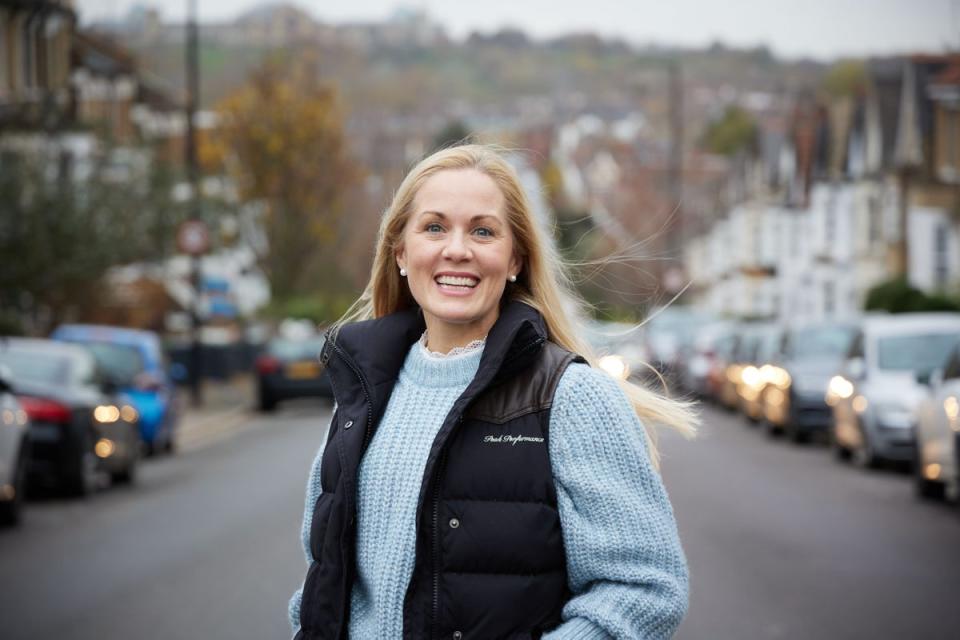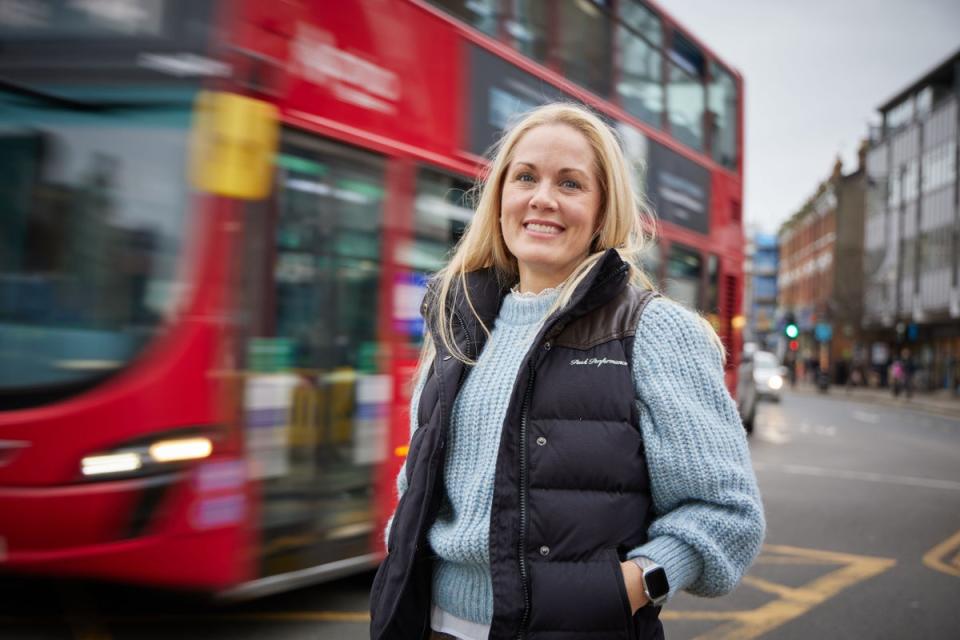Loneliness, small-talk and racist colleagues: why Londoners are boomeranging back to the city

Gallery founder Annabelle Byrne, 30, and her boyfriend Brayan Arredondo Moncada, 27, never thought they’d return to the big smoke — or at least not so soon.
After three lockdowns holed up with two friends in a “studenty” flatshare in Walthamstow, the prospect of being able to afford their own place outside of London was too tempting to turn down. Why spend all their earnings on a tiny room in a four-person London flatshare when they could afford a whole flat to themselves outside London — and save enough to one day buy their own house? Dreamier still, they could do so in the vibey seaside town of Margate in Kent.
The couple quit their respective jobs at BrewDog in February 2021 and started a new life on the Kent coast the following month: Byrne as a part-time virtual assistant alongside working in a local cake shop. “Buying suddenly felt do-able,” says Byrne, who runs an affordable art gallery, Shiver, in her spare time.
But their coastal idyll was not to be. Any hopes of saving money, making friends in local pubs, and weekends promenading along the seafront were quickly replaced by a harsher reality: elitist landlords who’d pick tenants based on how “fancy” their job titles were; days spent crouching next to an electric heater in a poorly insulated house; and constant “surface-level” small-talk about the same two topics: the weather and the beach.
Other things quickly ground them down, too, like a lack of vegan food options and not just being able to pop out for a meal on a Monday night. But for Colombian-born Moncada, the final straw was the blatant racism he experienced from his colleagues, who subjected him to a daily torrent of verbal abuse.
“In London, there were elements of xenophobia,” says Byrne. “But they were micro-aggressions. In Margate, it was blatantly nasty. We just thought: ‘We have to get out of here’.”

Just 11 months after quitting the rat-race for the countryside, the pair handed in their notice and swapped their three-bedroom house in Margate for a one-bedroom flat in Woodford Green, north London. “We haven’t looked back since,” says Byrne. “Even if we can’t afford to do everything in London, it’s just nice to know it’s all there — the gigs, the art galleries, the cute indie shops, Chinatown... People in London are nicer and more politically aware, too, even if they don’t make as much small-talk. We wouldn’t change a thing.”
Byrne and Moncada are certainly not the only Londoners who’ve rushed to return to their old lives in London post-pandemic. According to estate agents Halifax, house prices in the capital are rising at the fastest rate in six years as so-called “boomeranger buyers” shun their long commutes and leafy lives in the home counties in a race to be back amid the buzz of the city. The average property price in London is now reportedly around £554,000 — a rise of 8.8 per cent in the year to August — as buyers begin to counter the city’s pandemic-induced exodus. “The desire to be right in the middle of the hustle and bustle of vibrant London is certainly re-emerging,” says Andrew Weir, CEO of buying agency London Central Portfolio. “As the social and cultural benefits of being in the centre of London have become more apparent, so has the desire to live close to the action.”
Even if we can’t afford to do everything in London, it’s nice to know it’s all there — the gigs, the art galleries, Chinatown...
Annabelle Byrne
Notting Hill, Chelsea, Ealing, and Chiswick are among the most likely boomerang postcodes named by estate agents, who say professionals in financial services, media, and advertising are the most likely to do so. Many, like Byrne and Arredondo Moncada, say country living was not what they thought it would be, with loneliness, boredom, and political differences among the common push factors, and London’s job prospects, convenience, and breadth of things to do at the top of the pull-factor list. Will Watson, partner at property agency the Buying Solution, says this has only accelerated as the weather worsens, with those who moved to the home counties during summer finding “that they’re missing the activity of London – the cafés, the pubs, the restaurants” as winter unfolds.
Those of all age groups appear to be joining the charge back to the city. “I missed my friends and the atmosphere of the pubs,” says PR account manager Michael Hocking, 29, who thought his big move to rural Cheshire during the first lockdown would be permanent, but has since returned to a new flat in New Cross Gate.
“There hasn’t been a single moment that I have regretted leaving Yorkshire. Even though London is grubby, crowded, and expensive, I feel like myself here,” novelist Kia Abdullah, 40, says of her return to London from the Yorkshire Dales earlier this year.
Families, too, are shunning their new life in the sticks. “We exchanged just before I gave birth, moved to Crouch End when our baby was six weeks old, and haven’t looked back,” says Rebekah Clark, 44, founder of children’s wellbeing brand Happy Marlo, who has spoken of the nightmare of “tricky neighbours, isolation, and zero buzz” when she and her husband left Camden for their dream home in rural Hertfordshire in 2016.

People are moving back from further afield, too. Dentist Camilla Redin Contino, 43, says she’s lived in several spots outside London over the years, from Horsham in West Sussex to — more recently — rural Sweden, but she couldn’t be happier that she, her husband Dan and their two daughters chose to return to Crouch End. “The countryside is beautiful: I grew up there and we still love escaping to the Lake District and Wales at the weekends, but [country life] wasn’t for us at all. I had completely the wrong idea about it,” she says. “We really, really missed London.”
But what about those who left London for financial reasons and simply can’t afford to boomerang back? Byrne says she fell into this camp initially, but was surprised to discover it’s not always that straightforward. Though rents were significantly cheaper in Margate, she and Moncada still found themselves comparatively worse-off, once they’d accounted for their lower salaries (he was paid just £7 an hour, compared to £17 an hour in the capital) and eye-watering energy bills that came from heating a larger, poorly insulated home. “We technically had three bedrooms — four if you count the dining room we could’ve used — but the house was so cold and bills tripled in two months, we ended up moving our mattress into the living room so we only had to heat one room.”

Redin Contino admits London can be much more expensive than other parts of the UK, but believes it’s worth it: “Your life is richer here, even if your wallet is not. It feels like a place of possibilities,” she says. Contino admits her family have got “lazier” with days out since the pandemic, but they “still love to go out and roam the streets of Shoreditch, to visit museums and galleries, to go to Chinatown for proper real Chinese food. You get the real thing when you go to do things in London. Even in Muswell Hill, where we are now, you can go to the farmers’ market every weekend and see different things from the previous weekend. It’s less samey. The children get more out of living here. We don’t even have to go out and do anything special, we can just pop out for some street food in Camden, but it feels like we’re soaking up the city.”
Abdullah echoes Contino’s point about London’s possiblities. “In Yorkshire, our days – and especially our nights – felt predictable. There were several lovely tea rooms, but not much in the way of bars and restaurants. One thing I love about London is you might start the night at a slightly pretentious bar in Shoreditch and end it at some stranger’s house party.”
Life in London is richer, even if your wallet is not... It feels like a place of possibilities
Camilla Redin Contino
Abdullah and Contino both say the more flexible and aspirational nature of London has been a good thing from a career perspective, too. Abdullah says she no longer felt part of the “milieu that naturally brings opportunities” in the Yorkshire Dales. “Publishing is very London-centric and living so far away made it difficult to attend literary events, book launches, and media engagements,” she says. “I had to weigh every invitation: is this one-hour event worth two days of travel and a night in a hotel? It was usually hard to justify the time, cost, and effort.”
Contino and her husband have also found it easier to run their own dental businesses back in the capital. She believes part of this is thanks to practical convenience factors, like Uber and the Tube, which allow you to “get more done in a day”, but it’s also down to attitude. “London encourages you to want more, not just to stick to the status quo,” she says.

For many boomerangers, this sense of status quo applies not only to the people, but their conversation. “People in the countryside are technically being nice and chatty, but it’s surface-level, there’s no depth,” says Byrne, of her time in Margate. In the cake shop where she worked, people chatted — but only about the weather and whether they’d visited the beach yet. Back in London, it’s different, she says. “The only reason Londoners are seen as cold is that there are thousands of us: you’d be exhausted if you made constant small-talk with everyone you passed in the street.”
Clark says leaving the Labour-stronghold of Camden for the Tory-led, leave-voting town of Welwyn Hatfield was quite the “culture shock”, and Contino says she found the conversation out of London to be “narrow-minded”. “We missed the different people, different skin tones, different languages, influences, stories,” she says. “If you stick out [in the countryside], it’s a bad thing. If you stick out in London, it’s interesting.” She wants her daughters to grow up thinking it’s normal that not everyone looks like them.

Byrne and Moncada felt the sharper end of this lack of diversity. Their experience of the home counties was that of outright racism — but others say it’s not as blatant. “As a woman of colour, I always felt conspicuous. I found myself constantly code-switching in order to fit in,” says Abdullah, a British-Asian. She writes about this feeling of “code-switching” in her new novel, Those People Next Door, which is set in the suburbs of London. “I didn’t swear or crack cynical jokes, or even frown at strangers, because I knew they would remember me. I compare it to how you might act in front of your in-laws; you’re still yourself but a nicer, blander version of it — and that became exhausting.”
Clark experienced the same feeling during her brief stint in rural Hertfordshire. “I was almost always the only non-white person in the room, which made me feel conspicuous and unwelcome, even if that wasn’t the case. As a mixed-race woman who grew up in a predominantly white community, I had no desire to live out my adult years being the only person of colour I could see in the local pub, supermarket, restaurant, or shops.” She certainly didn’t want that for her children, too.
As a woman of colour, I always felt conspicuous. I found myself constantly code-switching in order to fit in
Kia Abdullah
For many, life in the countryside quickly became lonely. Abdullah says she and her husband looked at joining their local book club and running club in the Dales, but struggled to find people their own age, and Clark had a similar experience in Hertfordshire. “It felt like everyone was living in their own silos, hiding away in detached houses with driveways, and if we didn’t work locally or have a child in school or nursery, there was little chance of finding a way in,” she says.
As for her own friends, “people didn’t come to visit quite as often as we thought they might — and who could blame them? All the clichés about grown-up responsibilities were turning out to be true. People had their own babies, toddlers, ageing parents, and busy careers to think about.”

The commuting, too, started to grate. “Being a 30-minute train ride from the city sounds great in principle and is great in practice — when it works,” Clark says, reflecting on the litany of weather disruptions and timetable changes she and her husband experienced when they joined the commuting contingent. The recent train strikes have only made this worse.
Many boomerangers say the remote-working revolution that triggered their move quickly became more of a pipe-dream than a reality. Chiswick resident Rhys Cash, 45, and his wife spent more than a year searching for a more spacious home along the M4 corridor, but changed their minds when his employer announced he needed to be back in the office three days a week at the start of this year. Others say that even though they’re technically still allowed to work remotely, they’ve quickly realised it’s inhibiting their chances of being promoted: they’re being ignored during Zoom meetings and missing out on watercooler chatter — those “softer” job elements that can still important for wellbeing and progression.

Clark says these often-subtle problems that come with moving to the countryside mean boomerangers don’t always realise their mistakes at first — hence the fact that London house prices are only creeping up now. Does she regret it? Not exactly. She thinks she’d have always wanted to try living out of London “because that’s what so many people our age with young families do”, and Abdullah says she advises all born-and-bred city-dwellers to move away for a year — if only to appreciate what they had all along. “When you’ve lived in a city all your life, it’s easy to sneer at small-town living,” she says. “There’s a certain hubris that comes with living in London – it can feel like the centre of the universe – and that’s all the more reason to leave it for a while.”
Hocking agrees. “When I moved back to London, I felt like I did when I moved down here for university 10 years before: I was excited by it all again,” he says, confident he wouldn’t have had that newfound appreciation had he stayed in the city all the way through. Having said that, he’s glad he only rented. The most common mistake among boomerangers? The same as with most things in life: not trying before you buy.

 Yahoo Sport
Yahoo Sport 





































